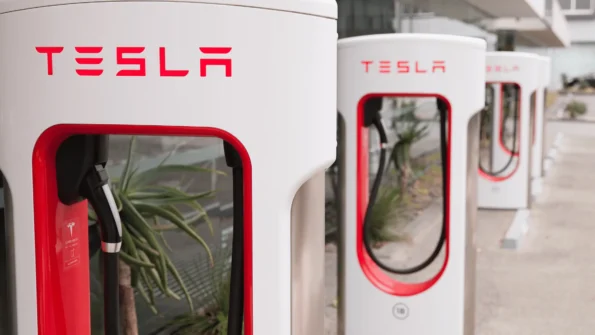It is a new year and with it comes hopes of better returns on investment. The previous year was good for some but for a few, however, major lessons were learned: the value of a plan; a plan for the unexpected and volatile nature of the stock market. The Tesla stock certainly proves the often volatile nature of the stock market.
It has become important to anticipate disruptions, given that the Covid-19 pandemic is still ravaging the world, and harness the opportunities that are presented with a formidable plan.
In 2020, we observed a clear distinction between winners and losers in the various sectors of the economy. The Tech industry was most successful while banking, energy, real estate, airline, and some other major industries suffered setbacks.
Incidentally, the separation was between those who built and implemented a plan to take advantage of the wave of disruption to achieve incredible profit and those who didn’t.
A few lessons from the economic events of 2020:
- The world is changing rapidly hence the market analysis require hard facts and relevant information
Formerly “safe” sectors like energy, financial, airlines, and real estate were terribly affected by the COVID pandemic that swept across the world. However, tech stocks have been on an absolute tear as companies like Amazon, Shopify, and most notably, Tesla has opportunistically seized market share.
It is difficult to assume that this development is a temporary “market rotation” that will reverse itself in the nearest future. We seem to be experiencing the early stages of a permanent shift in consumption patterns and consumer behaviour.
Recommendations:
- Individual stock investors must adapt or risk losing money or track of value.
- Investors need a plan and strategy to profit from the opportunities that are presented.
- Stocks with massive upsides made significant gains in 2020
While many Bay Street managers were developing a profitable portfolio by finding small wins in the expectation that margins of 10% here and 15% there will eventually add up.
Some investors were busy investing in stocks with massive upsides — like stocks that can make you 50%, 100% or 200% of your money. This approach was strongly associated with big risks and errors however, the end justifies the means especially in the case of Tesla stocks.
About Tesla
Tesla is an American Electric Vehicle and clean energy company based in California.
In May 2019, Elon Musk said the company’s market cap would eventually soar to US$500bn. Back then, this figure stood at under US$45bn, with analysts remaining skeptical about the business’s future. Today, Tesla’s market value is US$594bn, overcoming even Musk’s boldest estimates.
Within 12 months spanning through 2020, Tesla celebrated several milestones: its stock skyrocket above US$2,000 per share; undergoing a five-to-one split; and it was accepted into the S&P 500 Index.
Tesla stock started the year 2020 trading around US$430 per share. In March 2020, it plunged to US$361 as the Covid-19 pandemic struck the market. However, on March 18, 2020, the company’s shares were already changing hands at S$427.64 on March 19, 2020, it was gaining strong upside momentum.
Based on the Tesla stock analysis, the share price reached US$1,795 on July 13, 2020, indicating a hike of over 300 percent from the start of 2020. The price then retraced to US$1,500, but shortly after surged higher, driven by the company’s outstanding Q2 financial report.
On July 23, 2020, the stock opened the trading day at US$1,678.95 per share. At this point, the company had a market cap of almost US$300bn, making it the world’s most valuable car manufacturer.
The Tesla stock was split making the stock more accessible for new investors and the stock split was warmly welcomed by the market, with shares gaining 13 percent right after the news on the upcoming event was reported. On August 31, 2020, the five-for-one stock split went into effect, lowering Tesla’s sky-high share price of US$2,230 to US$446.
After a drop to US$330 per share in early September 2020, the stock has mainly been in the uptrend ever since, trading around US$625 per share on December 10 and giving the company a market cap of more than US$594bn. A few days earlier, on December 7, 2020, its market value hit US$608bn for the first time.
However, the big question in the minds of investors now is: Should we invest in Tesla now or wait for its bullish rise to halt?
Factors to consider in Tesla Stock investment decision
Tesla Financials
On October 21, Tesla reported its financial results for Q3 2020. The business surpassed analysts’ expectations and reported its fifth consecutive quarter of profitability. The EV carmaker reported US$8.77bn in revenue and a non-GAAP gain of US$0.76 per share. Moreover, in the third quarter, Tesla generated US$1.395bn of free cash flow.
Progressive Year-over-Year profitability
Tesla reported that it delivered 139,300 vehicles during the third quarter of 2020, a 44 percent growth year-over-year despite the aim of the company for a total of 500,000 deliveries within 2020.
Inclusion on S&P 500 Index
In November, S&P Dow Jones Indices announced that Tesla would be included in the S&P 500 Index. After proving its ability to make profits for four quarters straight, the EV pioneer is set to join the other 499 iconic US companies on December 21, 2020.
Largest S&P 500 company by market cap
Based on Tesla’s market value, the index will need to make a major purchase of the company’s shares. Moreover, there are nearly US$5.4tr in funds indexed to the S&P 500, including the SPDR S&P 500 ETF (SPY) and the Vanguard S&P 500 ETF (VOO). These funds will need to buy millions of Tesla’s shares for billions of dollars, subsequently increasing demand for the stock.
Production capacity expansion
Tesla progressed plans to expand its manufacturing capabilities, as Musk plans to build 20 million EVs per year over the next decade.
The company’s third manufacturing factory near Berlin, where the Model Y will be produced, is now under construction and is expected to be completed in March 2021.
The fourth plant will be built near Austin, Texas, and will become Tesla’s largest manufacturing facility. It will produce Cybertruck, Semi, Model 3, and Model Y.
Competition
While Tesla is expanding, competitors are building their own EV capacity and this will eventually affect volume and pricing at Tesla:
NIO is expecting to increase its own production capacity from about 60,000 vehicles per year today to 150,000 by the end of 2021.
Volkswagen has the capacity to build 300,000 electric vehicles at its new China factory and says it will be able to build 1.5 million EVs annually by 2023.
General Motors (NYSE: GM hasn’t set near-term production targets, but it plans to invest $27 billion in EVs and autonomous driving between now and 2025.
Nissan, BYD, Hyundai, Rivian, Fisker, BMW, and others have been investing in electric vehicles that haven’t hit the market.
Analyst predictions of Tesla stock
- In November 2020, Morgan Stanley analyst Adam Jonas upgraded his rating from hold to buy, boosting the price target from US$360 to US$540. Jonas’ most bullish scenario for the stock is US$1,068 per share, while the bear case is US$250. Jonas said that the company is more than just a car producer: “Tesla is on the verge of a profound business model shift. For the first time, we are adding software and connected vehicle services revenue to our earnings forecast and base-case valuation.”
- Goldman Sachs also upgraded Tesla stock from Neutral to Buy, raising its 12-month price target from US$455 to US$780.
- Dan Ives, an analyst at Wedbush Securities, is also feeling optimistic about Tesla, raising his price target for the stock from US$500 to US$560. Ives said: “Overall, we are seeing a major inflexion of EV demand globally with our expectations that EV vehicles ramp from 3 percent of total auto sales today to 10 percent by 2025.” He added that Tesla was likely to achieve its goal of one million deliveries by 2023 or even sooner.
- Credit Suisse analyst Dan Levy opted to hold Tesla shares and set a US$400 price target. Levy’s most-bullish case assumes 2.8 million vehicles sold in 2025, with the company’s stock trading up to US$1,100.
- On the contrary, Ryan Brinkman, an analyst at J.P. Morgan, said: “We recommend investors not weight Tesla shares in their portfolio in equal proportion to the S&P because Tesla shares are in our view and, by virtually every conventional metric, not only overvalued, but dramatically so.”
Brinkman explained that Tesla’s surging share price might not be driven by the company’s actual performance but by “speculative fervor”. The analyst increased his price target from US$80 to US$90, keeping the underweight rating. The investment bank (J.P. Morgan) was unflinching in its Tesla stock projection.
Analyst recommendations are divided into Tesla stocks. Some analysts have a buy rating and one believes TSLA will outperform the market. However, some other analysts have a hold rating while urging investors to sell, and two believe there will be underperformance.
The bottom line
Today’s market is more unpredictable than ever, making it difficult to provide some certain long-term Tesla share price prediction.
We acknowledge that the company’s growth is rapid and the financials are good but there is that worry that Tesla stocks are overvalued hence forming a bubble.
The decision to sell a substantial quantity of Tesla stock that an investor is holding during the year especially when the share market price becomes stagnant, during the year, maybe wise after all.
Recommended Resources
- Gordon Johnson, CEO and founder of GLJ Research, discussed his bearish view on Tesla after the company’s inclusion in the S&P 500. – Bloomberg.com
- Bruce Croxon, co-founder of Round13 Capital, joined BNN Bloomberg to weigh in on Tesla’s surging share price. He said that Tesla is a tech company masquerading as an automaker, and that Tesla’s strength lies in its software, its technological capabilities and its innovations in battery power. – Bloomberg.com
- Bloomberg News’ David Welch joined BNN Bloomberg with the details on Tesla’s soaring shares. He said that the age of the electric car is here, and Tesla’s technology is unrivalled in comparison to other automakers. Tesla is currently “the iPhone” of electric vehicles, and will continue to see growth until it is unseated by another automaker. – Bloomberg.com
Credit:
- Tesla Stock Prediction for 2021 and Beyond: Ready to Soar All the Way Past US$1,000 – Valerie Medleva, Capital.com, December 11, 2020.
- Bloomberg.com












